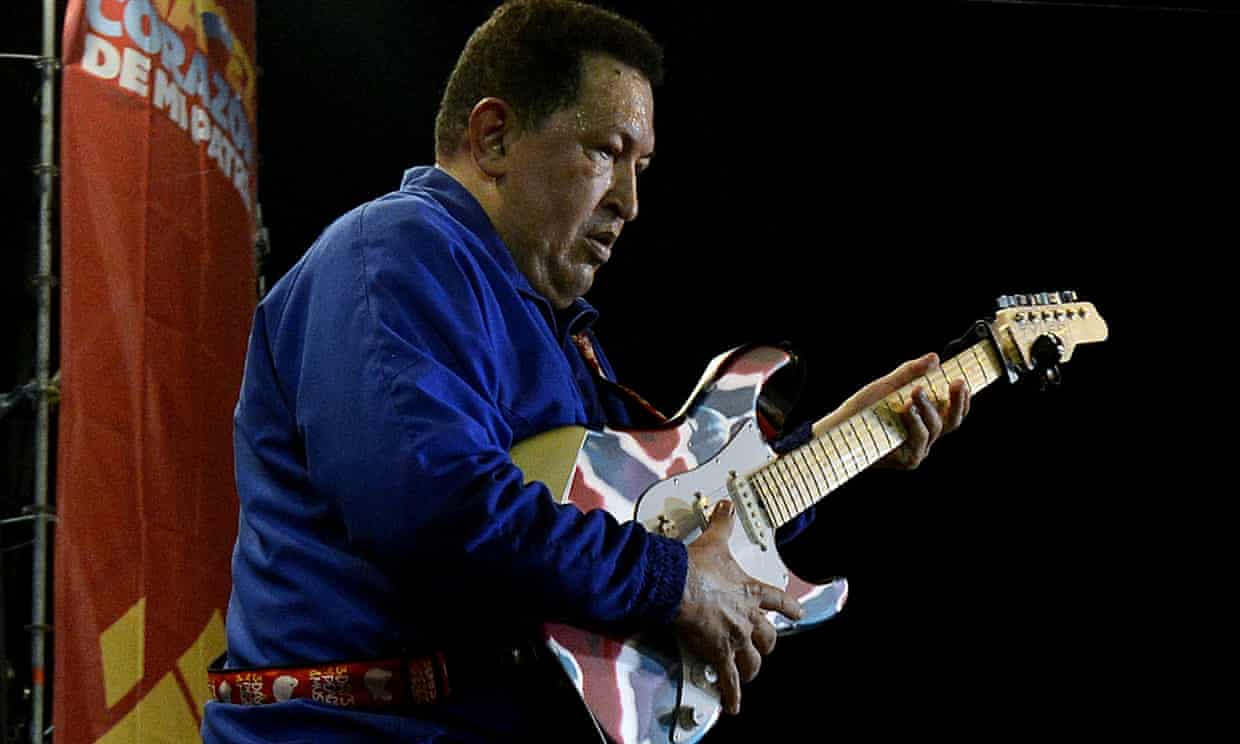
Venezuela
Sing a song of subversion: US funded Venezuela rock bands to dent Chávez
Partially redacted grant application shows scheme involved paying 10 groups to write songs promoting ‘freedom of expression’
by Joe Parkin DanielsThe United States funded rock groups in Venezuela to record songs promoting democracy – and undermine the rule of Hugo Chávez – according to documents released after a Freedom of Information Act request.
More than 10 bands were contracted in 2011 to produce new songs promoting freedom of expression in the oil-rich nation. The $22,970 scheme, which was to culminate in a battle-of-the-bands style concert, was approved by the National Endowment for Democracy (NED), a non-governmental agency responsible for promoting democracy abroad.
The partially redacted grant application was uncovered by Tim Gill, a sociologist at the University of North Carolina Wilmington, and shows the efforts of US officials “to promote greater reflection among Venezuelan youth about freedom of expression, their connection with democracy, and the state of democracy in the country”.
Gill said the revelations were unorthodox but unsurprising. “The NED supported many causes in order to promote democracy, not all of them nefarious,” the academic said. “But the issue is that it has the ability to fund some voices instead of others.”
Successive US governments sought to unseat Chávez, whose self-styled Bolivarian revolution was in part built on anti-American sentiment.
The populist leader was briefly unseated in 2002 by a military coup. It later emerged that the administration of George W Bush had known about the coup beforehand, although Washington distanced itself publicly from involvement.
By 2011, US officials were apparently exploring less dramatic measures to undermine his leadership.
“I can’t imagine they thought this alone was going to bring down the government,” Gill said. “But is music important and does it shape people’s views? I could draw a straight line from listening to punk rock to reading Noam Chomsky and learning about stuff about revolutions and interventions that they don’t teach in schools.”
It is not the only time the US has attempted to spark unrest through music in adversarial Latin American countries. In 2014, it was revealed that USAid, the American development aid organisation, had been secretly attempting to infiltrate Cuba’s underground hip-hop scene.
Neither plot appears to have yielded many tangible results. Nor was it clear why the Venezuela plan focused on rock music in a country whose airwaves are dominated by salsa, merengue and reggaeton.
Chávez died of cancer in 2013, bequeathing a collapsing economy to Nicolás Maduro, his successor. And attempts to oust Venezuela’s leader have continued apace.
A 2019 plot to trigger a military uprising in support of the opposition leader Juan Guaidó fizzled out within hours, and earlier this month, American mercenaries led a botched raid to capture Maduro.
The latest plan quickly fell apart with two Americans captured, allowing Maduro to appear triumphant on state TV.